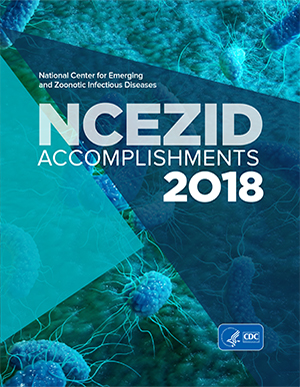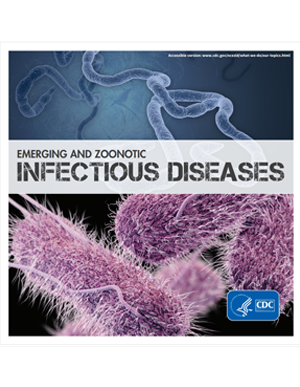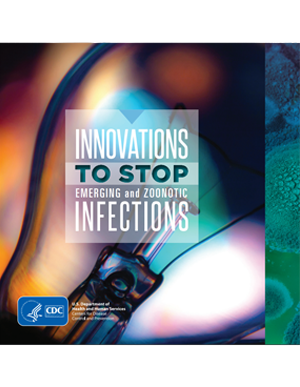NCEZID: Public Health Preparedness

At NCEZID and—and throughout CDC—our top priority is keeping people healthy and safe. Preparing for infectious disease threats, whether they are naturally occurring or the result of an intentional release, is one of the mission-critical activities of NCEZID. We do not know when (or if) a national health emergency like the anthrax attacks of 2001 might happen again. What we do know is that if anthrax or another biological agent were intentionally released, NCEZID would be central to CDC’s response.
- We have the scientific expertise. At CDC, the disease detectives who specialize in the world’s most dangerous pathogens work in NCEZID. NCEZID’s scientists are among the world’s leading experts in highly pathogenic bacteria and viruses like those that cause anthrax, botulism, plague, smallpox, and Ebola (just to name a few!).
These specialized NCEZID scientists are vital in helping CDC and its partners prepare by developing diagnostic tests and updated guidance for clinicians, laboratories, public health officials, and the public. This experience and knowledge would be critically important to saving lives during a large-scale public health emergency caused by bioterrorists. - We oversee work in CDC’s high-containment labs (HCL). Many of the dangerous pathogens that could cause major outbreaks or be used in bioterrorism are securely handled in the HCL labs staffed by NCEZID scientists. The biosafety level (BSL)-3 lab handles pathogens that could cause serious illness, but could be treated. Pathogens that are even more deadly and for which no vaccine or treatment is available require containment in the most secure facility, the BSL-4 lab.
- We manage the Laboratory Response Network (LRN). The LRN is a unique network of more than 130 laboratories established in collaboration with the Federal Bureau of Investigation and the Association of Public Health Laboratories to respond to public health emergencies, including bioterrorism or chemical terrorism. The network includes state and local public health laboratories, as well as veterinary, agriculture, military, law enforcement, and water- and food-testing labs. When an emergency strikes, the LRN can quickly mobilize to investigate and respond.
Accomplishments & Innovations
Find more information on accomplishments and innovations in Public Health Preparedness in these publications.


